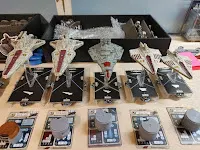In October Dave will be putting on a very large Seminole war game for the club. A forgotten period in the 1830's the Seminole wars are a fascinating period that is too often forgotten or ignored. Dave is extremely knowledgeable about it and over the years I have learned a lot about it from him.
 |
| the great man himself! |
Dave has also been trying to find a set of rules which are playable and capture the sense of the period. Not much to ask I know. After rejecting a number of rules during the play tests he has settled on "Our Mochicins Trickled Blood." I know, its a very odd name! The rules are very playable and capture a sense of the scale between skirmish and company level. And they move fast which is what you want in a game. I will explain some concepts as the game moves on.
The Battle of Lake Okeechobee centered around American General Taylor attacking across a swamp with a mixed force of Regulars and militia/volunteers who's goal is to capture the village and its people which will force the warriors to surrender. Although they are outnumbered two to one the crafty Osceola has prepared a deadly welcome. Historicaly after struggling through five foot tall sawgrass and swamp they find the ground has been cleared judt in front of the woods where the Seminole have taken position. The goal is to delay the Americans long enough to allow the women and children to escape across the river.
 |
| Warren at top of page measures to move his US regulars. |
Our play test starts with about half the American forces on the table struggling to get through the saw grass and cross the swamp. Two companies of US Regulars on the right and four companies militia on the left. Osceola and his warriors are positioned in the woods. Four warrior bands on the right and the left. In the rules its a IGUG turn sequence. In addition each command rolls for his many operations it can do a turn. A operation can be move, change formation, fire, or reload. You get the idea. Depending on unit type and dice roll you can get 1, 2 or 3 operations.
The first couple turns saw the Regulars and Militia struggle through the terrain. Once across the swamp and into the open ground that changed. The Seminoles rolled high and got three operations. so we got to fire, reload and fire again. I smashed the militia skirmish line in front of me and George shot up one company of regulars.
 |
| US Regulars |
 |
| Militia |
Next turn we rolled poorly and got 1 operation while they got 2. So the Americans dashed forward while all we could do was reload.
As the US regulars and militia closed for fighting we were luck and again got 3 operations. So we could fire twice at them before combat.
Unfortunately for them I rolled really well and decimated the militia. They had enough for the day and turned around and skedaddled home!e George had a harder fight since one company got through. But in the fight they also failed morale and fell back.
At this point we paused the game as the second wave of Americans prepared to enter the fight. We felt the rules worked well and we all had now got the feeling for them. We decided to break and get together again next week to try the entire scenario from the start.
So stay tuned for the next round!
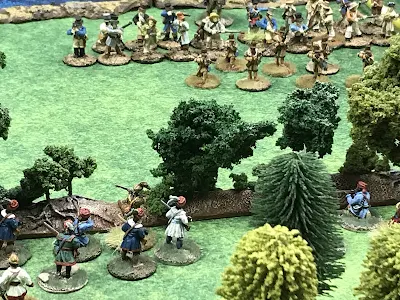

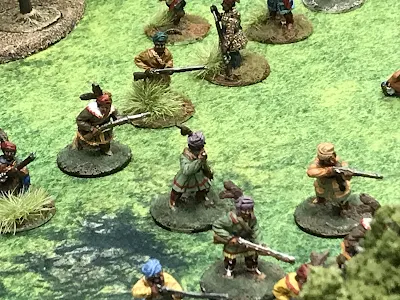











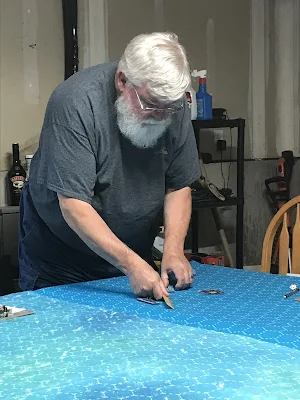
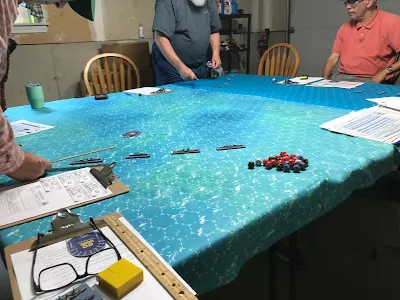









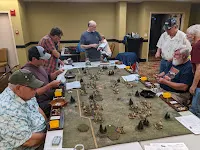
.jpg)



